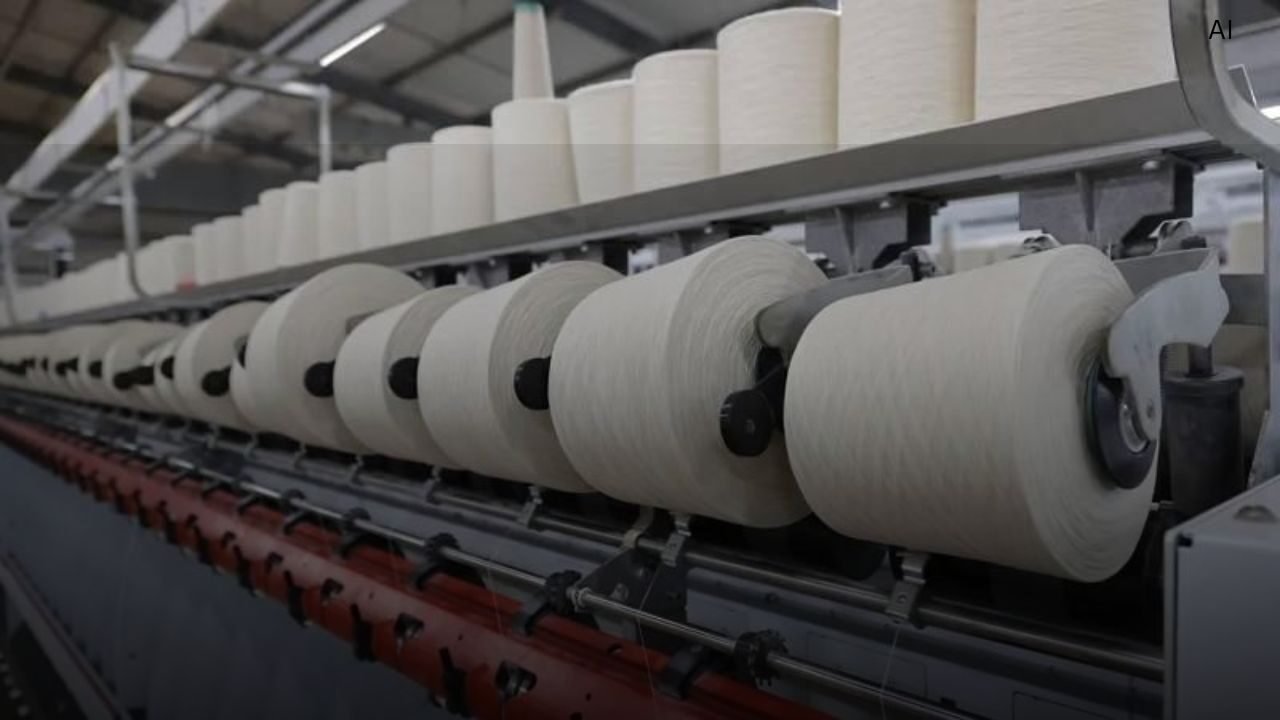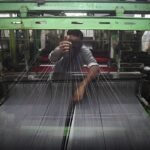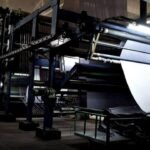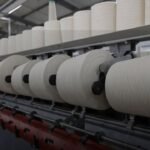By Moaaz Manzoor
Pakistan is preparing a major plan to turn its textile and apparel industry into a cleaner, greener, and fairer sector under the new Pakistan sustainable textile policy. The goal is to make production more climate-friendly, resource-efficient, and socially responsible — all in line with global sustainability standards.
Textile and Apparel Policy 2025–30: A Push for Green Innovation
At the center of this plan is the upcoming Textile and Apparel Policy 2025–30, which puts a strong focus on recycling, inclusivity, and protecting the environment across every stage of textile production.
National Strategy for Sustainable and Circular Textiles
According to the draft policy shared with this reporter, the government will set up a National Strategy on Sustainable and Circular Textiles.
This strategy will help the textile industry meet international sustainability targets, including the United Nations Sustainable Development Goals (SDGs), and follow new global rules for eco-friendly design, traceability, and reducing carbon emissions.
Pakistan Green Taxonomy Framework for Eco-Friendly Financing
To make this happen, the Ministry of Commerce will work together with the Ministry of Climate Change, the Securities and Exchange Commission of Pakistan, and provincial environmental protection departments. They will create systems for companies to publicly report their environmental, social, and governance (ESG) activities — such as greenhouse gas emissions, energy use, and waste management — following international standards.
In another important move, the State Bank of Pakistan will design a Pakistan Green Taxonomy framework. This plan will guide banks and financial institutions to support eco-friendly projects, including renewable energy, water conservation, and energy-saving technology in factories.
Green Financing, Incentives, and Cleaner Production Support
The policy also proposes financial help for industries investing in cleaner production methods. The Ministry of Climate Change and the Ministry of Commerce, through the Export Development Fund and international donors, will offer grants to businesses adopting green technologies.
These funds will support projects like factory decarbonization, recycling systems, renewable energy setups, and cleaner production processes that reduce waste and pollution.
To encourage more companies to follow global environmental rules, the Federal Board of Revenue will consider tax benefits for industries that meet top international standards like LEED, ISO 50001, and ISO 14001.
These incentives will help companies save money while improving their energy and water efficiency and cutting down on emissions.
Social Responsibility and Ethical Labor in Textile Sector
The framework also highlights the need for fairness and equal opportunities in the textile workforce. The Trade Development Authority of Pakistan will organize special training programs for women and people with disabilities to help them join and grow in the industry.
It will also support their participation in trade fairs and global events to open up new business and employment opportunities.
Improving workplace conditions is another major focus. The policy calls on the Ministry of Commerce and the Ministry of Overseas Pakistanis and Human Resource Development to set clear rules for ethical business practices.
These will ensure fair wages, worker safety, equal treatment, and proper grievance systems inside factories. Such measures will help Pakistan maintain compliance with international labor laws and retain trade advantages under programs like the European Union’s GSP+.
Sustainability as the Future of Pakistan’s Textile Exports
Sustainability, the policy says, is not just about protecting the planet — it’s also key to keeping Pakistan’s textile exports competitive.
As global buyers now demand cleaner production and transparency, following these standards will help Pakistan keep its place in international markets and strengthen its image as a responsible supplier.
The draft policy makes one thing clear: adopting low-carbon and efficient production methods will make Pakistan’s textile sector stronger, open new export opportunities, and support the country’s climate goals. To achieve this, it stresses the need for teamwork among the government, financial institutions, and the private sector to make sustainable production a lasting reality.
Author Profile
-
Moaaz Manzoor is a business correspondent who meticulously tracks Pakistan’s crucial but neglected natural resource industries.
He specializes in exposing inefficiencies and charting the course of modernization, highlighting how efforts to mechanize mining have dramatically cut marble and granite wastage, driving a recovery and attracting vital investment.





